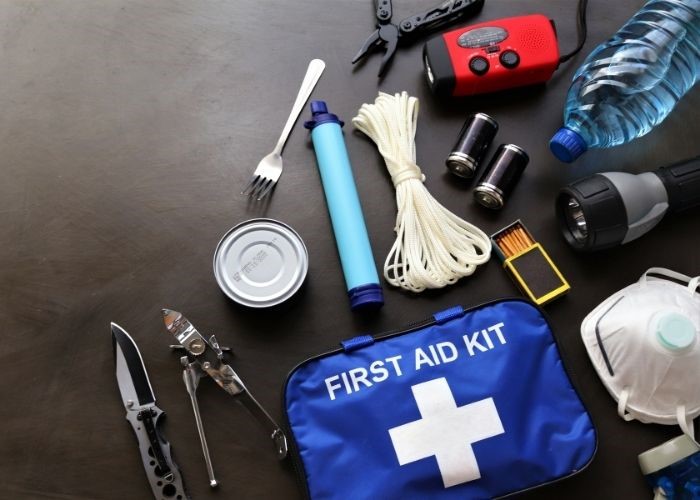Here are essential disaster supplies for vulnerable populations.
When caring for an aging parent with health problems, you must prepare for anything.
While disaster preparedness may sound exaggerated, it never hurts to have the essentials on hand. You never know when a hurricane, tornado, or earthquake could hit. Each one of these natural disasters impacts the options available for aging parents with health problems. That’s why you should stock up on these essential disaster supplies for vulnerable populations.
Basic Life Needs
You must first consider the basic life needs of every individual in your household, aging parents included. This can consist of an ample supply of clean water, shelf-stable food, and collapsible shelter. A disaster can take each of these things away from you in a matter of hours, so have these items stashed away in a safe space. Consider any dietary restrictions or allergies, especially those mandated by a doctor. Ready.gov, the hub for all government-approved disaster preparedness information, recommends food and water for at least three days, with about one gallon of water per person per day.
Daily Care Items
Each day, we use an array of products that we take for granted. In an emergency, you should have immediate access to face masks, eyeglasses, and a change of clothes. Your daily care also includes hygiene products, so you can stay clean and avoid infection. You must also remember to organize and set aside all prescription medications, especially those for aging parents. If they use other medical equipment, you should have a backup stock of that, too. Suppose your aging parent uses an oxygen tank; you should store a backup tank from specialty gas suppliers. Without these essential medical tools, your parent could face further danger.
Communication Tools
In an emergency, you could find yourself stranded with no way out. Think about having communication options for contacting family and the authorities. This can include a spare cell phone with a charger and a pair of radios. If you or someone else in your family ventures outside, you should have a form of communication ready to use. You should also have a flashlight and whistle if the electricity goes out and you have no way to signal your presence to others.
Do your best to stock up on essential disaster supplies for vulnerable populations. While you can’t predict the next natural disaster, it helps to prepare. Keep you and your family safe by gathering useful tools and items. You can all weather every storm with confidence.
Disclaimer: The material in this blog is for educational purposes only. It is not intended to replace, nor does it replace, consulting with a physician, lawyer, accountant, financial planner or other qualified professional.

